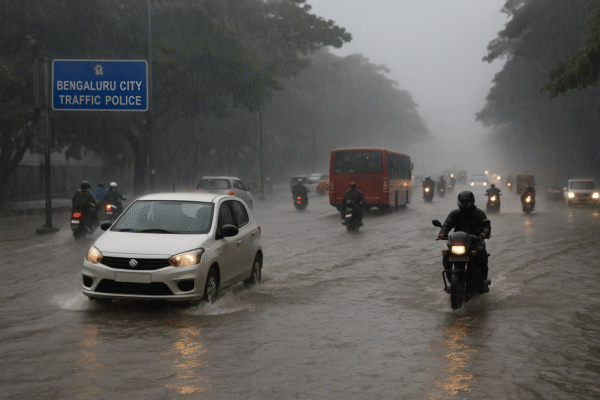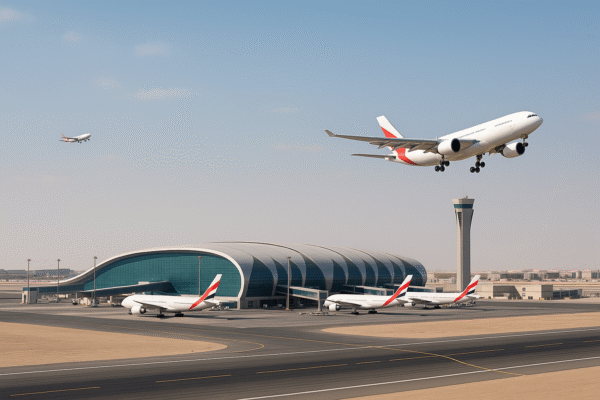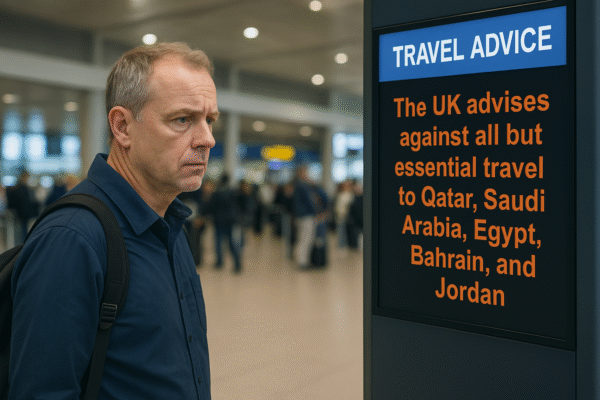In a significant development impacting tourism across the Middle East, the United Kingdom’s Foreign, Commonwealth & Development Office (FCDO) has updated its travel advisory for five key regional countries: Qatar, Saudi Arabia, Egypt, Bahrain, and Jordan. This change comes amid a deepening regional crisis driven by heightened tensions between Israel and Iran, prompting a reevaluation of travel safety for British nationals.
The revised guidance urges travelers to remain vigilant and avoid non-essential travel to certain areas, particularly those near conflict zones or border regions. While the majority of tourist hotspots remain open and functional, evolving geopolitical threats are influencing the way global travelers, especially from the UK and US, approach travel to the Middle East in 2025.
Qatar: A Stable Destination with Heightened Caution
Qatar, known for hosting world-class events and modern urban experiences in Doha, has generally maintained regional neutrality. However, due to its geographic proximity to countries involved in the ongoing Israel-Iran tensions, it now features in the updated advisory list.
Travelers are encouraged to:
- Monitor local media and official government channels.
- Stay informed about any diplomatic developments impacting travel.
- Have comprehensive travel insurance that includes emergency evacuation.
Qatar continues to be a hub for global conferences and events, but British nationals are urged to exercise caution, especially near diplomatic areas and major transportation hubs.
Saudi Arabia: Safety Concerns Near Yemen Border
Saudi Arabia’s tourism initiatives, including Vision 2030, continue to attract international visitors. However, the southern border with Yemen remains a high-risk zone. The FCDO strongly discourages all travel within 10 km of the Yemen border due to ongoing conflict with Houthi rebels.
Major cities such as Riyadh, Jeddah, and AlUla remain safe for tourism, though travelers are advised to:
- Avoid southern provinces like Jizan and Najran.
- Register with the UK government travel service before departure.
- Be aware of airspace closures and potential drone or missile threats in border regions.
Saudi Arabia’s investment in tourism infrastructure remains robust, but proximity to a volatile conflict demands careful planning.
Egypt: Border Security and Terrorism-Linked Warnings
Egypt, a cornerstone of global cultural tourism, is also affected by the new travel guidance. While Cairo, Luxor, and Aswan remain open and considered safe for travel, the Sinai Peninsula, Western Desert, and border with Libya are flagged as dangerous due to sporadic terrorist activity and ongoing military operations.
The Rafah border with Gaza remains closed due to the intensifying Israel-Palestine conflict, further complicating travel in the northern region.
Recommendations for Egypt-bound travelers include:
- Avoiding North Sinai and border zones.
- Verifying the operational status of domestic flights and trains.
- Booking escorted tours for safer travel across tourist landmarks.
Despite these concerns, Egypt’s Ministry of Tourism emphasizes its commitment to traveler safety and has enhanced security around key attractions.
Bahrain: Monitoring Regional Dynamics
Bahrain, a small but economically vibrant island nation, is closely monitoring developments in neighboring Saudi Arabia and Iran. While there are no current internal threats, its strategic position in the Persian Gulf places it within a sensitive zone.
Travelers can still enjoy luxury resorts, historical forts, and the Bahrain Grand Prix, but should:
- Avoid political gatherings or demonstrations.
- Stay informed via the Bahrain Ministry of Interior.
- Monitor airline schedules for any last-minute disruptions.
The Bahraini government has reassured foreign nationals of its stability, but travel flexibility is recommended.
Jordan: Border Proximity Concerns Amid Syrian Conflict
Jordan, famous for sites like Petra and the Dead Sea, continues to welcome tourists. However, the UK government advises against travel within 3 km of the Jordan-Syria border due to the risk of conflict spillover and increased refugee movement.
Protests and political unrest may occur in Amman and other urban centers, necessitating vigilance.
Travelers should:
- Avoid northern border regions and desert crossings.
- Register with STEP (Smart Traveller Enrollment Program) or similar services.
- Have contingency plans in case of roadblocks or demonstrations.
The Jordan Tourism Board continues to promote the nation as a safe travel destination, though acknowledges regional instability warrants caution.
Comprehensive travel insurance is vital, with specific provisions for evacuation, trip cancellations, and healthcare access. With rapidly evolving tensions in the region, flexibility and planning are key.
Conclusion: Stay Informed and Travel Smart
While the Middle East remains a culturally and historically rich travel destination, current events necessitate heightened awareness. British travelers can still explore much of Qatar, Saudi Arabia, Egypt, Bahrain, and Jordan safely, provided they stay up to date with government advisories and plan responsibly.
This advisory is not a blanket ban but a call for informed, cautious travel. Tourists are encouraged to remain flexible, well-prepared, and connected to both local and international resources.
For more travel news like this, keep reading Global Travel Wire















